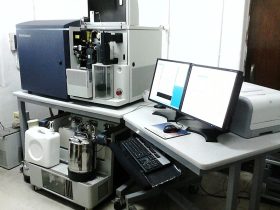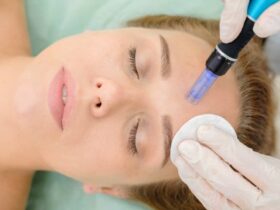Colorectal cancer is one of the most preventable cancers due to the availability of pre-screening procedures for the disease. One of the most common pre-screening procedures is a colonoscopy, which is an examination done by inserting a flexible tube called a colonoscope that contains a small camera that lets the doctor view the interior walls of the colon. You can get a colonoscopy in Singapore through https://alpinesurgical.sg/screening-packages/.
Through a colonoscopy, your doctor will be able to identify any abnormal polyps or growths that can possibly be cancerous and remove them through the procedure. Using these removed tissue samples, a biopsy may be conducted to determine the risk of cancer.
What is a colonoscopy?
A colonoscopy is a test performed to observe and examine the inside of the colon or large intestine. The procedure uses a special instrument called a colonoscopy, which is a very long and flexible tube containing a small camera and a tool for removing tissue. Your doctor will then examine the camera feed through a monitor to find any abnormal growths, polyps or tissues that may be a cause for concern.
What is a colonoscopy for?
There are multiple possible reasons why your doctor may recommend you get a colonoscopy done. These include the following:
- To check and examine signs and symptoms in the intestine – If you experience some abdominal pain, bloody feces, chronic diarrhea and other intestinal issues, then your doctor may request you to get a colonoscopy to check for possible causes for these symptoms.
- As a pre-screening examination for colorectal cancer–Your doctor may recommend you get a colonoscopy even without symptoms if you exhibit some risk factors for colorectal cancer. These include being 45 years or older and having little to no physical activity.
- As a needed step for treatment – There are some cases wherein a colonoscopy may be required for a certain type of treatment, such as when inserting a colonic stent or for removing a foreign object in your intestine.
- To check for additional polyps – A follow-up colonoscopy to remove more polyps may be recommended by your doctor after a few months from an earlier colonoscopy.
What to do to prepare for a colonoscopy?
Before you get a colonoscopy, you will have to meet your doctor for a prior consultation. Your doctor will need to know about any medication you may be taking regularly. He/she will advise you whether or not you may need to change or pause your medication and for how long you will have to do it. This is to ensure that the medicine that you take will not affect the colonoscopy.
You will also be asked to take a laxative in pill or liquid form a day before the procedure. This helps clean out or empty your colon to make it easier to get a good view of its insides during the colonoscopy. In many cases, you may also be asked to take the laxative the morning of the procedure.
Your doctor will give you further advice on colonoscopy preparation such as which food you should eat and drink before the procedure. It is recommended that you avoid any food that contains corn, seeds, and nuts as they may not fully digest and impede the procedure.You will also need to drink plenty of fluids the night before to help you not become dehydrated. Finally, you will need to avoid eating or drinking at least 4 hours before the scheduled colonoscopy.
What are the risks of getting a colonoscopy?
Although a colonoscopy isn’t really an invasive procedure, there are a few possible risks that come with it, albeit very rarely. These include:
- An allergic reaction to the sedative or anesthesia
- Bleeding in the inside of the colon due to a polyp or growth removal or from a tear
What should you expect on the day of the colonoscopy?
You can go about with your usual morning routine, however you should avoid using any perfumes, deodorants, and lotions. You should also leave at home any jewelry and valuables.
Once you get to the hospital or clinic, you will be asked to change into a hospital gown. You will then be sedated or be put under anesthesia to minimize the discomfort during the procedure. You will then be asked to lie on your side for most of the procedure.
Before the instrument is inserted, the doctor may use a small amount of air to expand your rectum. You may feel some discomfort once the colonoscope enters your rectum and may feel cramping or even the urge to defecate, however these should subside gradually. The whole colonoscopy procedure will take anywhere from a few minutes to an hour.
What do you do after the colonoscopy?
After the colonoscopy, you will most likely feel a little week or groggy as you will still be recovering from the sedative or anesthesia. Because of this, it is vital that you have someone you know drive you home to avoid any accidents. There may be a bloated feeling directly after the procedure due to air being trapped inside the colon. This feeling should disappear in a few hours though, as the air gets cleared out.
Another important thing that may be possible after a colonoscopy is some bleeding found on your first bowel movement. This shouldn’t be a problem, however if the bleeding persists for more 1-2 weeks, then you may need to talk to your doctor about it.
You will need someone to drive you home since you will still feel some aftereffects due to the sedation or anesthesia. You should also avoid drinking alcohol and doing any physical activity for at least 24 hours to give your body time to recover.
For your diet, it should be safe to go back to your normal one immediately after the colonoscopy, unless your doctor tells you otherwise. Your doctor will also advise you on when you can resume medications you’ve stopped.
Alpine Surgical Practice – Dr Aaron Poh, Consultant Surgeon
3 Mount Elizabeth
#17-16 Medical Centre
Singapore 228510
Phone: +65 6589 8929
Whatsapp: +65 8875 0080













